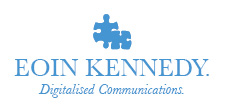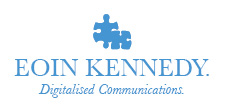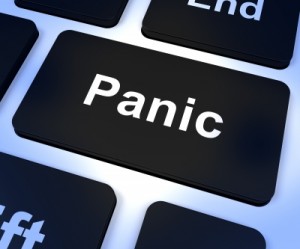Social Media Crisis come in all shapes and sizes. #SocialCrisis 2
Social media crisis come in all shapes and forms.
As social media crisis are still pretty new they come in all shapes and forms and many companies are only discovering them the hard way as the stumble through them. Instances that would previously led to a few telephone complaints can now spiral out of control as trending topics on social media and end up in traditional media.
In this post I will look at the some of the higher profile Irish and International social media crisis and the catalysts that have dropped companies into hot water. Most were avoidable and as expected human intervention has a heavy hand to play.
- Scheduled Tweets. Tesco made matters worse for themselves in the middle of the horse contamination issue with a tweet that was scheduled to automatically appear. Forgetting about these automated tweets can easily happen as when a crisis breaks it soaks up all focus.
- Angry tweets are a bad idea. The escalation of a war of tweets and the impact of losing ones temper was clearly visible in the Cinnamon restaurant or TwitterGate debacle. A sorry would have defused the situation at the beginning and calling your customers names is rarely going to work out well. Tempers can get raised very fast on twitter and companies should be braced for very public niggling.
- Be real sensitive to cultural differences. The posting of a ‘proud to be British’ tweet on the Irish Starbucks twitter account once again showed how easy it is to post the wrong content when managing multiple accounts and how quickly the mistake can be spread and reworked. It also demonstrates that content on official social media accounts can be regarded as an official voice/perspective even if clearly a mistake.
- Hashtag Hijacking is a Bad Idea. The ongoing experiences of clothing companies consistently using hashtags linked to natural disasters or major political events to generate traffic or sales is clearly bad short term thinking. The resultant backlash points to bad judgement by some companies. Just because you can do it and it will probably generate more traffic does not means you should do it. Gap has reported said that the Foursquare promotion where they used #sandy cost them over $1,000,000 in direct and clothing donations. There are very few companies who can ride the controversy of trying to make a quick buck off others misfortune.
- Expect some Bashtagging. Buying promoted tweets and owning a hastag to promote a marketing initiative can be a good idea but it is also an opportunity for those who have a gripe against the company to leverage it against you. Although McDonald stopped its #mcdstories campaign after a couple of hours it was enough time for a slew of sarcastic posts by consumers using the hastag and predictably enough the hijacking of it by activists groups to promote their anti McDonalds cause. McDonalds has continued to use promoted tweets and hashtags since this so it will be interesting to see if the level of activism subsides. What you pick to promote is key and your interests are not always the same as consumer interest. Irish politicians are famous for their Phoenix Magazine test where they try vet something for possible future embarrassment. When judging whether to do a photocall or not, they first picture how Phoenix Magazine might reuse it on their front cover and then decide to do it or not. This slightly paranoid thinking might help companies be more careful in what to promote via hashtags.
- Don’t give the kids the keys. Many companies have gotten into trouble by simply divesting control of their social media outreach. This can take the form of giving control to junior staff who might not have the necessary experience and judgment skills or simply forgetting who manages the account. HMV Ireland experienced this when they closed their stores resulting in the inevitable layoffs including the person who managed their social media accounts from the beginning. They just forgot that part of their communications. Some others have been caught off guard by centralizing access to one person, so when that person goes on holiday and a crisis erupts no one can access the accounts. All of these just make a company look unnecessarily sloppy. One thing is certain – nothing brings social media more to the attention of senior management than a social media crisis.
- Misdirection is getting more sophisticated. Someone nabbing your twitter handle used to be as bad as it got for some companies. We have all seen the odd and funny tweets coming from an account that bears the name of a company but are obviously not its official account. The #shellfail campaign showed a level of sophistication that was not only technically competent but more interestingly in the reverse engineering of how large corporate entity might respond to negative tweets and mimicking them. It also showed how hard it is to roll back negative coverage even if false especially when it moves all the way down the line into trusted traditional media.
- David and Goliath. Social media gives equal power to individual expression that previously would not have had an outlet. The Graham Bolger Facebook post when he was not granted access to the Madison Nightclub in Dublin shows how simple actions can unleash a very strong knee jerk reaction online. Interesting in this example the comments in the TheJournal coverage of the same event showed how the tide can change on opinion and that the answer is not always to fire the person involved.
- Trust is sacred. While in the middle of a crisis it does not pay to try to be smarter than others and take short cuts. The distribution of photoshopped images by BP in the Deepwater Horizon crisis demonstrated that you need to be very careful when under the microscope and that there are millions of forensic experts out there. Trust is a fragile thing and own goals can jeopardise all communication.
- Competitions can break your heart. Competitions that utilise the Facebook ‘Like’ mechanic or are popularity type contests are great for spreading a competition wide and far and in Facebooks case – generating likes. However obeying Facebooks rules for competitions is not enough and you need to really carefully think through all the elements that could go wrong. The real issue with popularity contest is that as the stakes get raised people commit more and more of their emotional capital to them, so the level of disappointment if they don’t win is much greater than a casual entry. This disappointment normally leads to a scrutinizing of the winner as happened in the 7Up Minister for Crack Facebook and the Skillens Jewellers competition.
Some small instances can have a disproportionate impact when amplified on social media. Crisis can originate here or social media can be the explosive channel that ignites its amplification.
Preparation is key to managing a social crisis and thinking through all the possible things that could go wrong is a time consuming but extremely worthwhile exercise.
In the next post I will look at some of the preparatory things that should happen in all organisations before any crisis hits.




No comments